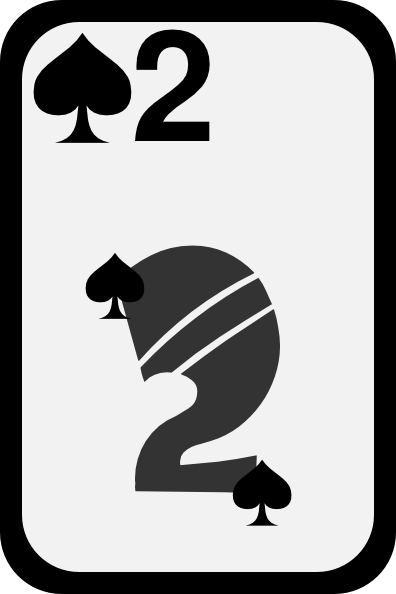
I guess I should have listened.) Anyway, I guess being “in spades” is a good thing in the card game, and that’s the basis for the slang phrase, although “in spades” is often used to mean an abundance of bad things. (I had a cousin once try to teach me Bridge when we both about twelve, but he might as well have been talking to his dog. The “spades” of the phrase are definitely cards of the “spade” suit, which is apparently the highest-ranking suit in the game of Bridge. This new “spade” was only used in this “card” sense until the late 1920s, when the phrase “in spades” suddenly became slang in the US meaning “extremely, very much, in abundance” (“I always hear the same thing about every bum on Broadway, male and female, including some I know are bums, in spades, right from taw.” Damon Runyon, 1929). As I said above, the ultimate root of this “spade” is the same Greek “spathe” as that of the “spade” implement, but this “spade” was filtered through Italian, where “spada” had come to mean “sword.” Apparently Italian playing cards of the “spade” suit originally carried the mark of a sword, but because the “spade” of playing cards was the same word as the digging tool in English, the shape of the tool ended up on our cards. The other “spade” in English, first appearing in the late 16th century, is the black spade-shaped mark that distinguishes one of the four suits of modern playing cards. Translating the saying from Plutarch, the Renaissance scholar Erasmus mistook a Greek word meaning “bowl or trough” for one meaning “spade.” So “to call a spade a spade” should rightly have been “to call a bowl a bowl.” It is the shape of the common modern spade, sort of heart-shaped with a point, that marks the suit of playing cards known as “spades.” The saying “to call a spade a spade,” meaning “to call something by its real name,” i.e., “to speak directly and bluntly,” also refers to the gardening implement, but the English version of this ancient phrase is actually the result of a famous error. The first of these “spades” to appear (in Old English), filtered through Low German, was “spade” meaning “a tool for digging in the ground, cutting turf, etc.” (“Of labouring Pioners A multitude with Spades and Axes arm’d.” Milton, Paradise Regain’d, 1671).

They’re considered separate words because they came into English by different routes, but they share a common source, the Greek “spathe,” meaning “paddle, wooden blade, sword.”

There are actually two separate “spades” in English, but as soon as I say that I have to qualify it a bit. At my end, I did a quick search of my own site and discovered that in almost 20 years of writing this column (roughly 3,000 columns), I’ve used the phrase “in spades” repeatedly, but apparently never quite got around to explaining it. Well, that is a slightly unusual usage of “in spades,” but a quick search of Google turns up more than a hundred sites using that exact phrase (“The negative effect will be multiplied in spades,” et al.), so you’re not nuts. I can imagine a connection to other card games, to gambling, and eventually to success at gambling - living flush, “in spades.” But “multiplied in spades”? - Harry. I assumed the game of Bridge, but a search showed no apparent connection. Dear Word Detective: I found myself using the phrase “multiplied in spades” and wondered where it came from.


 0 kommentar(er)
0 kommentar(er)
